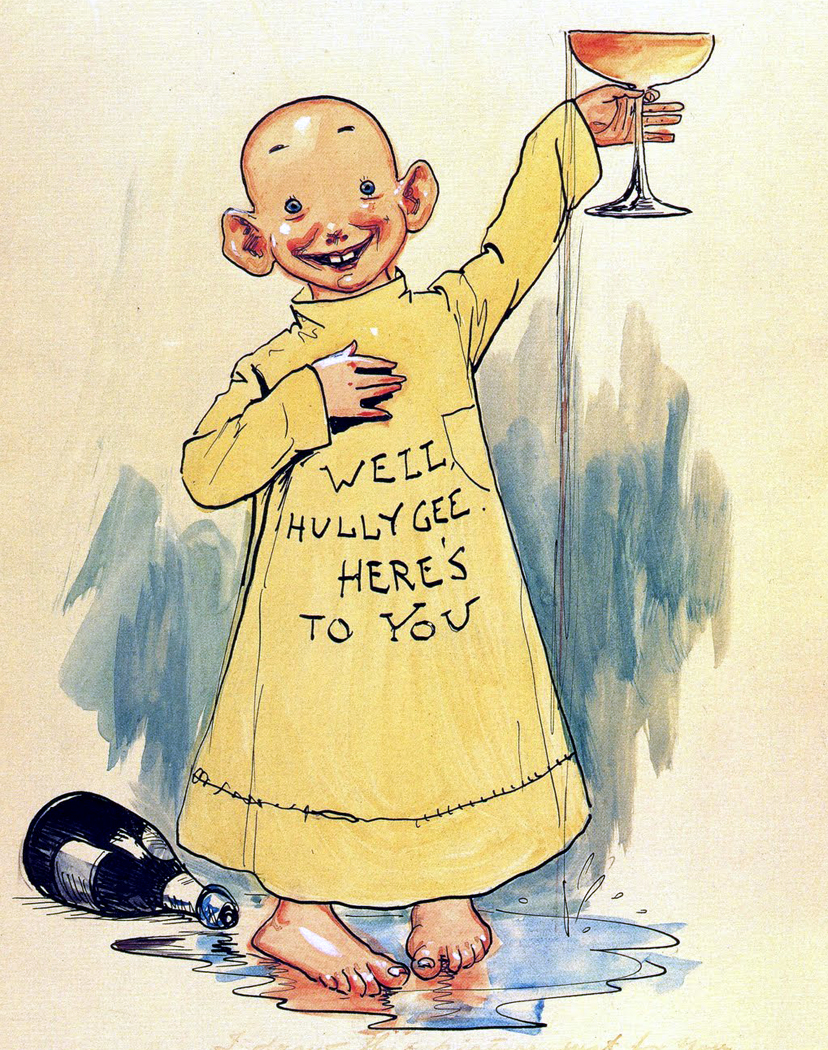|
Deviance Amplification
The deviancy amplification spiral and deviancy amplification are terms used by interactionist sociologist to refer to the way levels of deviance or crime can be increased by the societal reaction to deviance itself. Origin of term The process of deviancy amplification was first described by Leslie T. Wilkins. Process According to sociologist Stanley Cohen, the spiral starts with some deviant act. Usually the deviance is criminal, but it can also involve lawful acts considered morally repugnant by a large segment of society. With the new focus on the issue, hidden or borderline examples that would not themselves have been newsworthy are reported, confirming the pattern. This confirmation of the pattern was first documented by Stanley Cohen in ''Folk Devils and Moral Panic,'' a study of the media response to clashes between the Mods and Rockers, two rival subcultures of the time. Reported cases of such deviance are often presented as the ones we know about, or the "tip of the ... [...More Info...] [...Related Items...] OR: [Wikipedia] [Google] [Baidu] |
Deviance (sociology)
Deviance or the sociology of deviance explores the actions and/or behaviors that violate social norms across formally enacted rules (e.g., crime) as well as informal violations of social norms (e.g., rejecting folkways and mores). Although deviance may have a negative connotation, the violation of social norms is not always a negative action; positive deviation exists in some situations. Although a norm is violated, a behavior can still be classified as positive or acceptable. Social norms differ throughout society and between cultures. A certain act or behaviour may be viewed as deviant and receive sanctions or punishments within one society and be seen as a normal behaviour in another society. Additionally, as a society's understanding of social norms changes over time, so too does the collective perception of deviance. Deviance is relative to the place where it was committed or to the time the act took place. Killing another human is generally considered wrong for example, ... [...More Info...] [...Related Items...] OR: [Wikipedia] [Google] [Baidu] |
Junk Food News
Junk food news is a sardonic term for news stories that deliver "sensationalized, personalized, and homogenized inconsequential trivia", especially when such stories appear at the expense of serious investigative journalism. It implies a criticism of the mass media for disseminating news that, while not very nourishing, is "cheap to produce and profitable for media proprietors." Meaning The term ''junk food news'' was first used in print by Carl Jensen in the March 1983 edition of ''Penthouse.'' As the leader of Project Censored, he had frequently faulted the media for ignoring important stories. In response, says Jensen, editors claimed that other stories were more important, and bolstered this claim with ad hominem comments directed against him. ...news editors and directors...argued that the real issue isn't censorship—but rather a difference of opinion as to what information is important to publish or broadcast. Editors often point out that there is a finite amount of t ... [...More Info...] [...Related Items...] OR: [Wikipedia] [Google] [Baidu] |
Social Phenomena
Social phenomena or social phenomenon (singular) are any behaviours, actions, or events that takes place because of social influence, including from contemporary as well as historical societal influences. They are often a result of multifaceted processes that add ever increasing dimensions as they operate through individual nodes of people. Because of this, social phenomenon are inherently dynamic and operate within a specific time and historical context. Social phenomena are observable, measurable data. Psychological notions may drive them, but those notions are not directly observable; only the phenomena that express them. See also * Phenomenological sociology * Sociological imagination Sociological imagination is a term used in the field of sociology to describe a framework for understanding social reality that places personal experiences within a broader social and historical context. It was coined by American sociologist C ... References {{Reflist Sociological t ... [...More Info...] [...Related Items...] OR: [Wikipedia] [Google] [Baidu] |
Media Studies
Media studies is a discipline and field of study that deals with the content, history, and effects of various media; in particular, the mass media. Media Studies may draw on traditions from both the social sciences and the humanities, but mostly from its core disciplines of mass communication, communication, communication sciences, and communication studies. Researchers may also develop and employ theories and methods from disciplines including cultural studies, rhetoric (including digital rhetoric), philosophy, literary theory, psychology, political science, political economy, economics, sociology, anthropology, social theory, art history and criticism, film theory, and information theory. Origin Former priest and American educator, John Culkin, was one of the earliest advocates for the implementation of media studies curriculum in schools. He believed students ought to be capable of scrutinizing mass media, and valued the application of modern communication technique ... [...More Info...] [...Related Items...] OR: [Wikipedia] [Google] [Baidu] |
Open University
The Open University (OU) is a British public research university and the largest university in the United Kingdom by number of students. The majority of the OU's undergraduate students are based in the United Kingdom and principally study off-campus; many of its courses (both undergraduate and postgraduate) can also be studied anywhere in the world. There are also a number of full-time postgraduate research students based on the 48-hectare university campus in Milton Keynes, where they use the OU facilities for research, as well as more than 1,000 members of academic and research staff and over 2,500 administrative, operational and support staff. The OU was established in 1969 and was initially based at Alexandra Palace, north London, using the television studios and editing facilities which had been vacated by the BBC. The first students enrolled in January 1971. The university administration is now based at Walton Hall, Milton Keynes, in Buckinghamshire, but has administratio ... [...More Info...] [...Related Items...] OR: [Wikipedia] [Google] [Baidu] |
Yellow Journalism
Yellow journalism and yellow press are American terms for journalism and associated newspapers that present little or no legitimate, well-researched news while instead using eye-catching headlines for increased sales. Techniques may include exaggerations of news events, scandal-mongering, or sensationalism. By extension, the term ''yellow journalism'' is used today as a pejorative to decry any journalism that treats news in an unprofessional or unethical fashion. In English, the term is chiefly used in the US. In the UK, a roughly equivalent term is ''tabloid journalism'', meaning journalism characteristic of tabloid newspapers, even if found elsewhere. Other languages, e.g. Russian ( Жёлтая пресса), sometimes have terms derived from the American term. A common source of such writing is called checkbook journalism, which is the controversial practice of news reporters paying sources for their information without verifying its truth or accuracy. In some countries it ... [...More Info...] [...Related Items...] OR: [Wikipedia] [Google] [Baidu] |
Sensationalism
In journalism and mass media, sensationalism is a type of editorial tactic. Events and topics in news stories are selected and worded to excite the greatest number of readers and viewers. This style of news reporting encourages biased or emotionally loaded impressions of events rather than neutrality, and may cause a manipulation to the truth of a story. Sensationalism may rely on reports about generally insignificant matters and portray them as a major influence on society, or biased presentations of newsworthy topics, in a trivial, or tabloid manner, contrary to general assumptions of professional journalistic standards. Some tactics include being deliberately obtuse, appealing to emotions,"Sensationalism." [...More Info...] [...Related Items...] OR: [Wikipedia] [Google] [Baidu] |
Representativeness Heuristic
The representativeness heuristic is used when making judgments about the probability of an event under uncertainty. It is one of a group of heuristics (simple rules governing judgment or decision-making) proposed by psychologists Amos Tversky and Daniel Kahneman in the early 1970s as "the degree to which n event(i) is similar in essential characteristics to its parent population, and (ii) reflects the salient features of the process by which it is generated". Heuristics are described as "judgmental shortcuts that generally get us where we need to go – and quickly – but at the cost of occasionally sending us off course." Heuristics are useful because they use effort-reduction and simplification in decision-making. When people rely on representativeness to make judgments, they are likely to judge wrongly because the fact that something is more representative does not actually make it more likely. The representativeness heuristic is simply described as assessing similarity of ob ... [...More Info...] [...Related Items...] OR: [Wikipedia] [Google] [Baidu] |
Rainbow Party (sexuality)
A rainbow party is a supposed group sex event featured in an urban legend spread since the early 2000s. A variant of other sex party urban myths, the stories claim that at these events, allegedly increasingly popular among adolescents, girls wearing various shades of lipstick take turns fellating boys in sequence, leaving multiple colors (resembling a rainbow) on their penises. The idea was publicized on ''The Oprah Winfrey Show'' in 2003, and became the subject of a 2005 juvenile novel called ''Rainbow Party''. Sex researchers and adolescent health care professionals have found no evidence for the existence of rainbow parties, and consequently attribute the spread of the stories to a moral panic. Origin The story was originally related by American Christian pediatrician Meg Meeker in her 2002 book ''Epidemic: How Teen Sex Is Killing Our Kids''. The book related allegations of adolescents suffering cancer, sterility, acute infections, and unwanted pregnancies as a consequence ... [...More Info...] [...Related Items...] OR: [Wikipedia] [Google] [Baidu] |
Missing White Woman Syndrome
Missing white woman syndrome is a term which is used by social scientists and media commentators in reference to the media coverage, especially on television, of missing-person cases involving young, attractive, white, upper middle class women or girls compared to the relative lack of attention towards missing women who were not white, of lower social classes, or of missing men or boys. Although the term was coined in the context of missing-person cases, it is sometimes used of coverage of other violent crimes. The phenomenon has been highlighted in the United States, Canada, the United Kingdom, South Africa, Australia, New Zealand, and other predominantly white countries. American news anchor Gwen Ifill is widely considered the originator of the phrase. Charlton McIlwain defined the syndrome as "white women occupying a privileged role as violent crime victims in news media reporting", and posited that missing white woman syndrome functions as a type of racial hierarchy in the cu ... [...More Info...] [...Related Items...] OR: [Wikipedia] [Google] [Baidu] |
Mean World Syndrome
Mean world syndrome is a hypothesized cognitive bias wherein people may perceive the world to be more dangerous than it actually is, due to long-term moderate to heavy exposure to violence-related content on mass media. Proponents of the syndrome—which was coined by communications professor George Gerbner in the 1970s—assert that viewers who are exposed to violence-related content can experience increased fear, anxiety, pessimism and heightened state of alert in response to perceived threats. This is because media (namely television) consumed by viewers has the power to directly influence and inform their attitudes, beliefs and opinions about the world. History The term ''mean world syndrome'' was coined in the late-1960s by U.S. communications professor George Gerbner, whose life's work explored the effects of television on viewers. Cultural Indicators Project and cultivation theory In 1968, Gerbner established the Cultural Indicators Project (CIP), which was a pioneering a ... [...More Info...] [...Related Items...] OR: [Wikipedia] [Google] [Baidu] |





